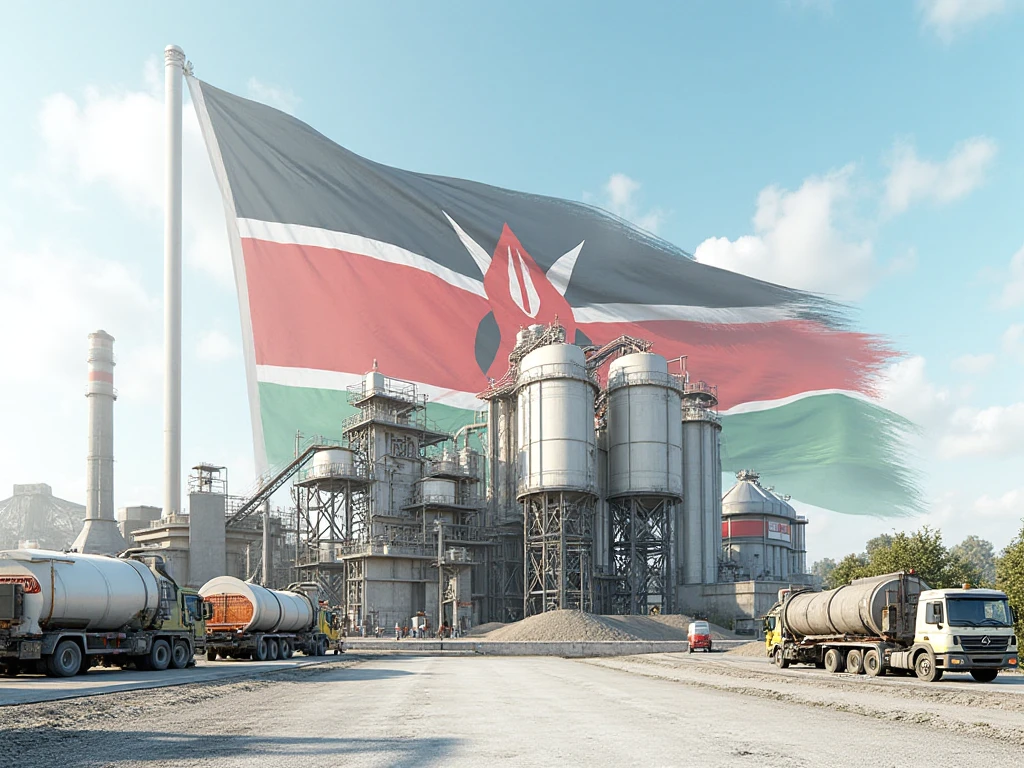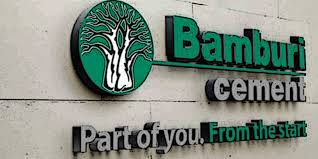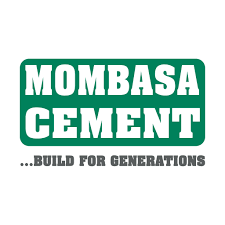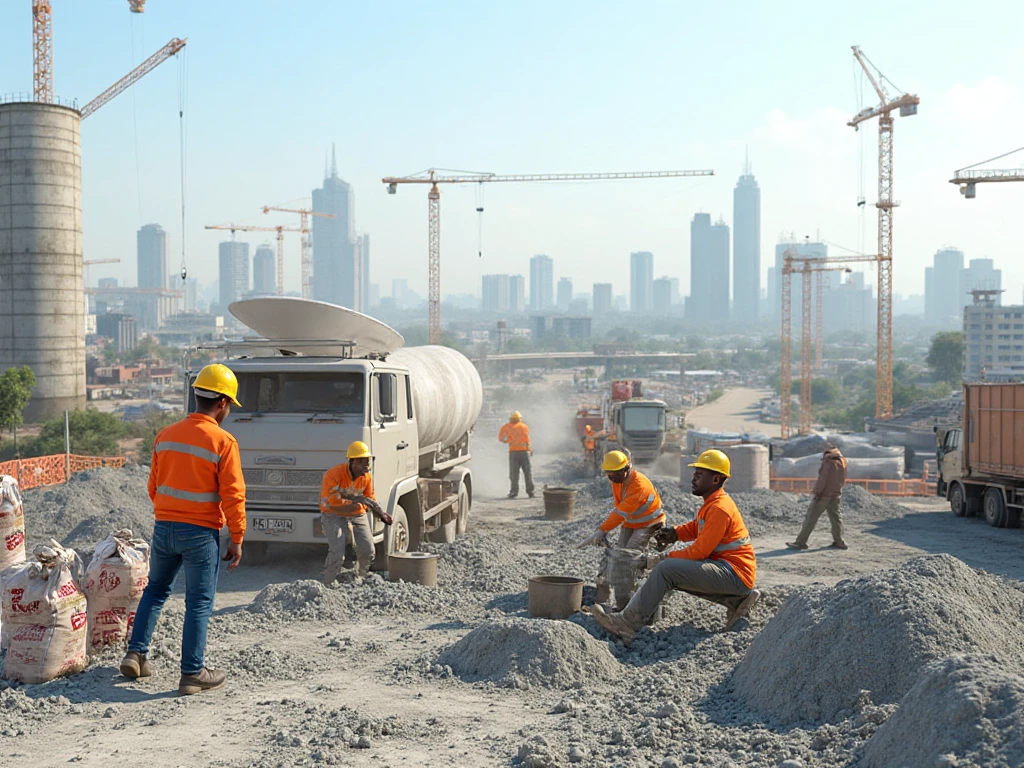Top 7 Best Cement Companies in Kenya for Quality and Reliability
A strong cement sector powers Kenya’s construction boom. Here’s a guide to the top 7 cement companies in Kenya, their production capacity, market share, and contributions to infrastructure growth.
Cementing Kenya’s Future with Strength and Reliability
The cement industry in Kenya is the backbone of the country’s ambitious construction and infrastructure development agenda. From affordable housing projects and road networks to mega infrastructure like the Standard Gauge Railway and LAPSSET Corridor, cement companies in Kenya play a central role in shaping the nation’s growth story.
With increasing demand for reliable, high-quality, and affordable cement, understanding the best cement brands in Kenya becomes critical for contractors, investors, and individual home builders. This article highlights the top 7 leading cement companies in Kenya, exploring their market share, production capacity, product range, and why they are trusted as Kenya’s most reliable cement companies.
For further reading, see our in-depth feature: Top 10 Cement Brands in Africa Powering the Infrastructure Boom.
The Leading Cement Companies in Kenya: Market Strength, Ownership & Future Outlook
Kenya’s cement industry is highly competitive, with several companies shaping the nation’s infrastructure and housing boom. These firms provide the best cement brands in Kenya, ranging from affordable options for local builders to premium quality for mega projects. Below is a detailed profile of the top cement manufacturers for construction in Kenya and their ownership, market share, projects, and future outlook.
1. Bamburi Cement Limited
Bamburi Cement is the largest and most influential cement company in Kenya. In 2024, it underwent a significant transformation when Amsons Group, a Tanzanian conglomerate, acquired 96.54% of its shares through Amsons Industries (K) Ltd. Previously, Bamburi had been under the majority control of Holcim AG, via Fincen and Kencem Holdings. The acquisition was finalised at KES 65 per share, underscoring investor confidence in the company’s strong market position. Following the transaction, Bamburi was suspended from trading at the Nairobi Securities Exchange as Amsons initiated the delisting of Bamburi Cement.
With a production capacity of over 3 million tonnes annually, Bamburi holds an impressive 30–32% share of the Kenyan cement market. It has supplied cement to some of the country’s most iconic projects, including the Standard Gauge Railway (SGR), the Thika Superhighway, and several large-scale commercial real estate developments. Its plants are strategically located in Mombasa and Athi River, giving it a vast distribution network. Moving forward, Bamburi plans to strengthen its dominance by expanding into regional markets, investing in production efficiency, and enhancing sustainability, positioning itself as a clear leader among the top cement suppliers in Kenya.
2. East African Portland Cement Company (EAPCC)
Established in 1933, the East African Portland Cement Company (EAPCC) is one of the oldest and most recognised cement production companies in Kenya. Its flagship brand, Blue Triangle Cement, has long been a trusted name for contractors, government projects, and individual builders. The company’s shareholders include the Government of Kenya and a mix of private and public institutions, making it partly state-owned.
EAPCC has an installed capacity of about 1.3 million tonnes annually, though operational inefficiencies and financial difficulties have reduced its effective output in recent years. Despite these challenges, its cement continues to feature prominently in government-funded infrastructure projects, including schools, roads, and social housing. Looking ahead, the company is focusing on modernising its production lines, cutting costs, and leveraging government support to stabilise its operations. These reforms are expected to help EAPCC remain competitive against younger and more aggressive leading cement companies in Kenya.
3. Mombasa Cement Limited (Nyumba Cement)
Founded in 2007, Mombasa Cement Limited has grown into one of the most formidable cement companies in Kenya, operating under the widely recognised brand name Nyumba Cement. The company is locally owned and distinguished through heavy reinvestment, efficient operations, and community engagement.
With a production capacity nearing 3 million tonnes annually, Mombasa Cement now rivals Bamburi in scale, capturing a substantial portion of the cement industry in Kenya. The company is also celebrated for its corporate social responsibility, building schools and health centres, and supporting local communities, which has earned it goodwill nationwide. Its cement has been used in key initiatives such as the government’s affordable housing program, coastal infrastructure projects, and large-scale commercial developments in Nairobi and Mombasa.
Mombasa Cement is poised for continued growth, with plans to expand its footprint further inland and embrace sustainable construction materials. Its reputation for eco-friendly building practices and innovative technology makes it one of the most reliable cement companies in Kenya today.
4. Savannah Cement Limited
Savannah Cement Limited entered the market in 2012, positioning itself as a modern and dynamic player among the cement companies in Kenya. Unlike many older manufacturers, Savannah was built with cutting-edge, energy-efficient production technology, allowing it to maintain quality and affordability.
The company produces about 1.5 million tonnes of cement annually, supplying major regions such as Nairobi, Rift Valley, and northern Kenya. Its cement is particularly popular in residential and commercial developments, where consistency and strength are key. Savannah has also gained recognition for its agility in responding to market trends and its emphasis on sustainability, setting itself apart from more traditional cement production companies in Kenya.
Looking ahead, Savannah Cement intends to scale up its production capacity, explore low-carbon product innovations, and expand to neighbouring East African markets. These initiatives position Savannah as one of the best cement brands in Kenya for future-oriented construction needs.
5. National Cement Company Limited (Simba Cement)
Part of the powerful Devki Group, National Cement Company Limited operates under the Simba Cement brand. Owned by industrialist Narendra Raval, popularly known as “Guru,” the company has grown rapidly by leveraging synergies with Devki’s steel and other manufacturing businesses.
National Cement has a production capacity of more than 2 million tonnes annually, ranking it firmly among the most reliable cement companies in Kenya. Its vast distribution network ensures availability across rural and urban markets, making Simba Cement popular for roads, bridges, and industrial construction projects.
Known for being affordable yet reliable, Simba Cement has built a strong reputation among contractors and individual builders. The company is now focusing on modernising its plants, expanding exports into the region, and investing in eco-friendly building materials, reinforcing its position as one of the leading cement manufacturers in Kenya.
6. RAI Cement Limited
RAI Cement Limited is one of the youngest entrants into the cement industry in Kenya, having launched operations in 2017. Headed by Jaswant Rai of the Rai family, the leading investor, the company operates from Awasi on the Kisumu-Kericho Road, serving Western Kenya, Rift Valley, and Nyanza regions.
RAI Cement manufactures the Dumu Cement brand, with an annual capacity exceeding 1 million tonnes. Due to its competitive pricing and accessibility, it has quickly gained popularity in underserved counties. The company is KEBS-certified, appealing strongly to individual builders and masons looking for affordable yet dependable options.
While RAI Cement has faced challenges, including scrutiny over quality standards and levy compliance, it continues to grow its market presence. The company’s plans include expanding production, enhancing quality assurance systems, and positioning itself as a credible competitor among Kenya’s leading cement manufacturers.
7. ARM Cement Limited (Rhino Cement)
ARM Cement Limited, commonly called Rhino Cement, was founded in 1974 by the Paunrana family. At its peak, ARM operated across Kenya, Tanzania, and Rwanda, making it a regional powerhouse among cement companies in Kenya.
However, years of financial mismanagement led to mounting debts, culminating in the company entering administration in 2018 with a reported KES 14 billion debt burden; hence, the collapse of ARM Cement Ltd. National Cement Company later acquired its Kenyan assets, and its shares were suspended from trading at the Nairobi Securities Exchange.
Despite its decline, ARM played a significant role in developing East Africa’s infrastructure for decades, supplying cement for housing, roads, and cross-border exports. While the brand is inactive mainly today, its former assets continue contributing under National Cement’s umbrella, leaving a legacy in Kenya’s cement production companies’ history.
Market Share and Production Comparison
Here’s a quick comparison of Kenya’s top cement suppliers by market share and production capacity:
| Company | Brand(s) | Production Capacity (Tonnes/Year) | Market Share (%) | Headquarters |
| Bamburi Cement Limited | Bamburi | 3,000,000+ | 30–32% | Nairobi/Mombasa |
| Mombasa Cement Limited | Nyumba | 3,000,000 | 27–29% | Mombasa |
| National Cement Company Limited | Simba | 2,000,000+ | 20% | Athi River |
| Savannah Cement Limited | Savannah | 1,500,000 | 10% | Nairobi |
| EAPCC | Blue Triangle | 1,300,000 | 6% | Athi River |
| RAI Cement Limited | Dumu | 1,000,000 | 4–5% | Kisumu-Kericho |
| ARM Cement Limited | Rhino (Legacy) | (Inactive) | N/A | Nairobi |
Why These Cement Companies Lead Kenya’s Market
The dominance of the cement companies in Kenya comes down to five strengths that separate market leaders from smaller players:
1. Reliability
- Leading firms have proven track records supplying cement for Kenya’s most significant projects, including highways, ports, and housing schemes.
- Reliability covers more than steady output; it includes:
- Consistent quality control.
- Backup production capacity (extra kilns, grinding lines).
- Strong logistics that respond to peak demand.
- These capabilities explain why Kenya’s most reliable cement companies are often the first choice for government and mega contractors.
2. Quality Assurance
- Construction projects rely on products that meet strict performance standards.
- The best cement brands in Kenya invest heavily in:
- In-house labs for testing compressive strength, fineness, and chemical balance.
- KEBS compliance and third-party certification.
- Multiple product grades (OPC, PPC, blended cements) are available for different uses.
- These practices assure contractors they’re getting the best cement for building in Kenya.
3. Sustainability
- Sustainability is now a competitive edge in Kenya’s cement industry.
- Market leaders adopt measures such as:
- Clinker substitution with pozzolans, slag, or fly ash.
- Alternative fuels and waste-to-energy systems.
- Energy-efficient kilns and renewable energy projects.
- These efforts cut costs and meet ESG requirements, helping leading cement manufacturers in Kenya secure long-term contracts.
4. Accessibility
- Availability is crucial in a fast-growing construction sector.
- The top cement suppliers in Kenya achieve this by:
- Operating multiple plants, terminals, and dealer networks.
- Using rail, port, and road hubs to optimise transport.
- Offering flexible purchase options: bulk cement, bagged cement, or credit facilities.
- Proper accessibility and availability make the best cement brands in Kenya accessible nationwide.
5. Affordability
- Price competitiveness is another reason top producers dominate.
- Large firms achieve this through:
- Economies of scale in production and energy use.
- Offering cheaper blended cements for mass projects.
- Premium OPC grades for specialised builds.
- This combination makes them the go-to affordable cement suppliers in Kenya.
In short, reliability, quality, sustainability, accessibility, and affordability form a cycle that ensures top cement production companies in Kenya continue to dominate.
The Future of Kenya’s Cement Industry
Kenya’s cement sector faces both strong opportunities and notable risks. The following trends will shape its trajectory:
1. Strong Demand Drivers
- The government’s affordable housing program guarantees steady consumption.
- Transport infrastructure (roads, rail, ports) keeps cement demand high.
- Rapid urbanisation fuels the need for residential and commercial projects.
- Together, these ensure growth for cement companies in Kenya.
2. Regional Market Opportunities
- Kenya’s coastal ports provide export access to Uganda, South Sudan, Rwanda, and the DRC.
- Regional integration under trade agreements reduces export barriers.
- Firms that establish regional grinding plants or bagging terminals will dominate cross-border markets.
3. Green Cement Adoption
- Demand for low-carbon and blended cements is rising fast.
- Multilaterally funded projects increasingly require sustainable construction inputs.
- Cement production companies in Kenya that invest in greener technologies will win environmentally, socially, and governance (ESG)- sensitive contracts.
4. Industry Evolution
- Expect more mergers and acquisitions among leading cement manufacturers in Kenya.
- Vertical integration will grow:
- Captive power plants.
- Ready-mix concrete.
- Precast and cement-based systems.
- Mid-sized firms will survive by focusing on niche markets.
5. Risks to Manage
- High energy and transport costs are tied to global fuel prices.
- Overcapacity occurs when new plants exceed demand.
- FX volatility is affecting imported machinery and spares.
- Environmental and regulatory compliance risks.
6. Opportunities for Stakeholders
- Investors: Target companies with integrated operations and sustainability roadmaps.
- Manufacturers: Expand product lines and modernise plants.
- Policymakers: Streamline trade, incentivise green cement, and provide steady project pipelines.
In summary, the future of Kenya’s cement industry lies in balancing demand growth with sustainability, regional expansion, and industry consolidation. The best cement brands in Kenya will combine scale, innovation, consistent quality, and green strategies.
Conclusion: Kenya’s Cement Sector Paving the Way Forward
The cement companies in Kenya continue to play a central role in driving the nation’s development, contributing to shaping Kenya’s economic trajectory. Kenya’s cement industry is competitive and diverse, offering investors, contractors, and builders various options. Giants like Bamburi and Mombasa Cement continue to dominate the cement industry, while other fast-growing cement companies in Kenya, such as National Cement and Savannah Cement, are shaping the industry’s future.
Smaller players like RAI Cement add to this diversity, ensuring that different regions of Kenya enjoy reliable access to cement for construction projects. This healthy competition benefits consumers, drives innovation, and supports Kenya’s ambitious infrastructure and housing agendas. For contractors and homeowners, the message is clear: Kenya’s cement sector offers affordable, reliable, and sustainable choices for every building project, big or small.
Build Stronger, Build Smarter
Want to explore the bigger African picture? Check out Top 10 Cement Brands in Africa Powering the Infrastructure Boom for insights into how continental leaders are transforming construction.
<script src="https://js.linkz.ai/?key=105092654094560394133"></script>












